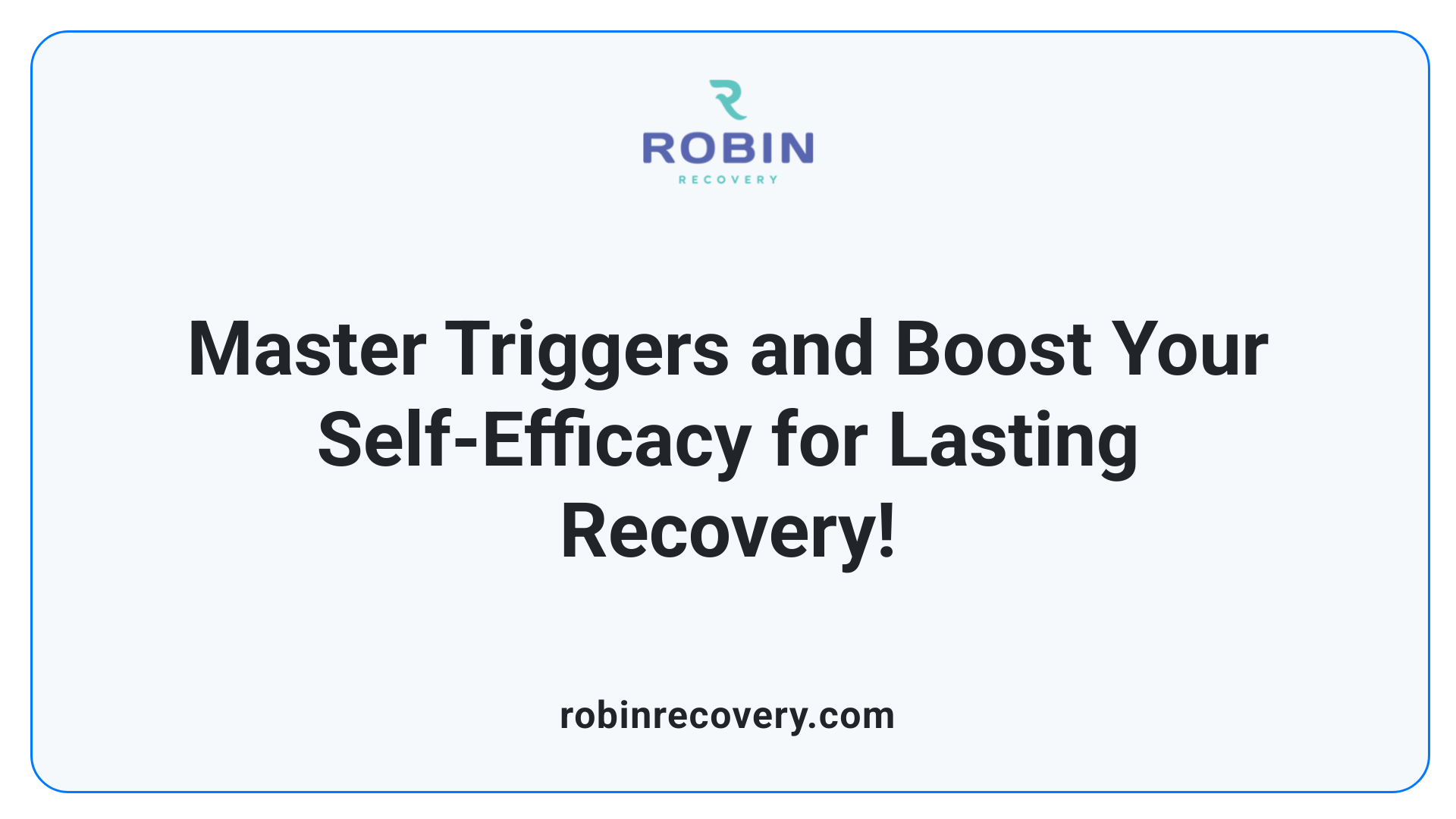How to Maintain Motivation in Outpatient Treatment Programs

Understanding the Dynamics of Staying Motivated
Maintaining motivation in outpatient treatment programs is a crucial factor that influences long-term success in addiction recovery. Unlike residential treatments, outpatient programs require individuals to balance treatment with everyday responsibilities, making self-motivation and support systems even more significant. This article explores various strategies, theories, and resources that can support individuals in their journey towards sustained sobriety within an outpatient setting.
The Essential Role of Self-Motivation in Recovery

What role does self-motivation play in addiction recovery?
Self-motivation plays a vital role in addiction recovery by empowering individuals to set personal goals and maintain their commitment to the recovery process. It serves as a driving force that fosters resilience, enabling individuals to navigate challenges such as cravings and withdrawal symptoms.
Internal motivation, arising from personal values and aspirations, is particularly crucial for long-term success. While external motivators like family or legal pressures can provide initial encouragement, sustainable recovery thrives on personal incentives.
How does self-efficacy contribute to recovery?
Building self-efficacy through mastery experiences and social support enhances self-motivation. When individuals experience small victories—like attending meetings or achieving minor sobriety milestones—their confidence grows. This positive reinforcement encourages them to face bigger challenges with a sense of capability.
What strategies help build resilience in recovery?
Sustained self-motivation is crucial for maintaining sobriety and overall well-being. Strategies include:
- Establishing a support network of friends, family, and professionals.
- Practicing self-care through healthy routines like exercise and mindfulness.
- Setting realistic and achievable goals that allow for measurable progress.
- Celebrating small wins to reinforce commitment and motivation.
In essence, self-motivation and resilience serve as foundational elements in navigating the complex journey of recovery, helping individuals to trust the process and believe in a healthier future.
Effective Strategies for Sustaining Motivation

Strategies for maintaining motivation in outpatient treatment for substance use disorders?
Maintaining motivation in outpatient treatment for substance use disorders is essential for achieving lasting recovery. Here are some effective strategies:
- Goal Setting
Setting specific and achievable goals helps individuals stay focused. For example, rather than aiming to "get healthier," a more specific goal could be to "exercise three times a week for 30 minutes."
Goals should be broken down into smaller, manageable steps to prevent feelings of overwhelm and promote a sense of accomplishment as individuals progress. - Regular Monitoring and Revision of Goals
Regularly tracking progress and revising goals based on current circumstances helps maintain motivation. Celebrating small victories reinforces commitment, ensuring that individuals recognize their accomplishments throughout their recovery journey. - Social Support Systems
Building a robust support network encompassing friends, family, and support groups is crucial. Emotional support from these relationships fosters accountability and provides encouragement in challenging times. Engaging with others who understand the recovery process aids in sustaining a positive mindset. - Self-Care Practices
Incorporating regular self-care activities, such as exercise, healthy eating, and adequate sleep, contributes positively to mental health and motivation. Furthermore, self-compassion and mindfulness can enhance resilience, enabling individuals to navigate setbacks effectively. - Coping Strategies
Developing coping strategies for high-risk situations and triggers ensures that individuals are prepared to manage cravings. This proactive approach helps maintain commitment to sobriety even when faced with challenges.
By implementing these strategies, individuals can cultivate an environment where motivation thrives, positioning themselves effectively on the path to recovery.
Managing Triggers and Enhancing Self-Efficacy

How can one manage triggers and enhance self-efficacy during recovery?
Managing triggers is critical during recovery. Triggers can be internal, like emotional distress, or external, such as certain environments or individuals associated with past substance use. Here are some strategies to effectively manage triggers:
- Trigger Identification: Recognizing what specifically leads to cravings is the first step. Keeping a trigger journal to document thoughts and feelings can help identify patterns.
- Coping Strategies: Utilizing techniques such as deep breathing, engaging in physical activity, or reaching out to support groups can help alleviate immediate cravings. These methods help redirect focus and manage stress.
Importance of Self-Efficacy
Enhancing self-efficacy, or the belief in one's own abilities, is essential for recovery success. It can be developed through strategies like:
- Positive Self-Talk: Encouraging oneself with affirmations promotes a more resilient mindset.
- Celebrating Small Victories: Recognizing and celebrating each achievement, no matter how minor, can significantly bolster confidence.
- Seeking Support: Surrounding oneself with understanding friends and family can provide the encouragement needed during tough times.
Incorporating self-care practices, such as maintaining a balanced diet, regular exercise, and ensuring adequate sleep, also contributes to rebuilding self-esteem and motivation. Thus, creating a comprehensive coping plan that outlines these strategies can play an integral role in managing triggers and fostering self-efficacy, ultimately aiding in sustaining long-term sobriety.
Frameworks and Theories Supporting Motivation
What motivational theories are relevant to outpatient addiction recovery?
Motivational theories play a crucial role in facilitating successful outcomes in outpatient addiction recovery. Two primary frameworks frequently utilized are the Transtheoretical Model (TTM) and Motivational Enhancement Therapy (MET).
Transtheoretical Model
The TTM outlines the Stages of Change, which include:
- Precontemplation: The individual is not yet considering change.
- Contemplation: The individual acknowledges a problem but isn't ready to change.
- Preparation: The individual intends to take action in the near future.
- Action: The individual actively modifies their behavior.
- Maintenance: The individual works to sustain the behavior change and prevent relapse.
This model empowers counselors to tailor interventions based on a client’s readiness for change, thus optimizing their motivation and commitment to recovery.
Motivational Enhancement Therapy (MET)
MET complements the TTM by focusing on resolving ambivalence towards change. Techniques like reflective listening and open-ended questions empower clients to strengthen their personal motivation. This helps individuals articulate their reasons for sobriety and enhances their self-efficacy.
Moreover, the Self-Determination Theory emphasizes the significance of autonomy, competence, and relatedness as foundations for fostering intrinsic motivation. This highlights the importance of a supportive relationship between counselors and clients to enhance treatment adherence.
These motivational frameworks not only guide therapeutic practices but also help clients navigate their unique recovery journeys effectively.
Importance of Support Systems and Self-Care

How can support systems and self-care sustain motivation in recovery?
Support systems are fundamental to maintaining motivation during recovery from substance use disorders. They provide encouragement, accountability, and emotional backing, essential during challenging times. Research indicates that individuals with a robust network of friends, family, and peers experience lower stress levels and improved quality of life. These factors can enhance motivation to remain sober.
One effective avenue for building a support network is through group participation, such as Alcoholics Anonymous (AA) or other community support groups. Sharing experiences and challenges with those who have undergone similar struggles fosters a sense of belonging and inspires motivation through collective success stories.
In parallel, self-care practices contribute significantly to sustaining motivation. Activities such as mindfulness meditation, physical exercise, and maintaining a balanced diet play a crucial role in emotional and mental well-being. For instance, engaging in regular physical activity can reduce stress and anxiety, which might otherwise impede motivation. By prioritizing self-care, individuals mitigate the risk of burnout and emotional overwhelm, enabling them to stay focused on their recovery goals.
Integrating a strong support system with dedicated self-care practices creates a conducive environment for long-term recovery. This dual approach not only reinforces motivation but also cultivates resilience against the challenges faced throughout the recovery journey.
Resources for Motivation in Outpatient Treatment

What resources are available for maintaining motivation in outpatient treatment?
Resources for maintaining motivation in outpatient treatment are diverse and robust, designed to help individuals navigate their recovery journey effectively.
- Intensive Outpatient Programs (IOPs): These programs provide flexibility, allowing clients to balance treatment with personal responsibilities, such as work and family.
- Motivational Interviewing Techniques: Counselors employ these techniques to help clients resolve ambivalence and enhance intrinsic motivation, reinforcing their commitment to change.
- Technology-Based Tools: Apps focused on therapy provide features like goal setting, progress tracking, and daily reminders, making it easier to stay on course.
- Support Groups and Networks: Engaging with peers through group therapy or online communities fosters accountability and connection, which are vital for sustained motivation.
- Self-Care Practices: Incorporating mindfulness, regular exercise, and healthy eating can boost emotional well-being, providing essential coping strategies during recovery.
Organizations like the Center for Motivation & Change offer evidence-based strategies to help clients identify personal motivations and chart a fulfilling recovery path.
The Path to Sustained Sobriety
Staying motivated during outpatient treatment is a dynamic and continuous process that requires dedication, self-awareness, and the right strategies. By integrating self-motivation techniques, setting achievable goals, managing triggers, and relying on strong support systems, individuals can navigate the complexities of addiction recovery. The use of motivational frameworks and access to supportive resources further enhance this journey. Ultimately, maintaining motivation is about building a new life rooted in sobriety, hope, and a renewed sense of self-worth. As individuals embark on this challenging path, they must remain resilient, lean on their support networks, and celebrate each small victory along the way.
References
- Chapter 1—A New Look at Motivation - NCBI
- Why is Self-Motivation So Important in an Outpatient Treatment ...
- Chapter 7—From Action to Maintenance: Stabilizing Change - NCBI
- How to Stay Motivated to Change in Addiction Recovery | VA
- Outpatient Recovery Tips for Success - Gateway Rehab
- How to Stay Motivated in an Early Recovery Outpatient Program
- How to Stay Motivated During the Recovery Process
- How to Maintain Motivation After Treatment
